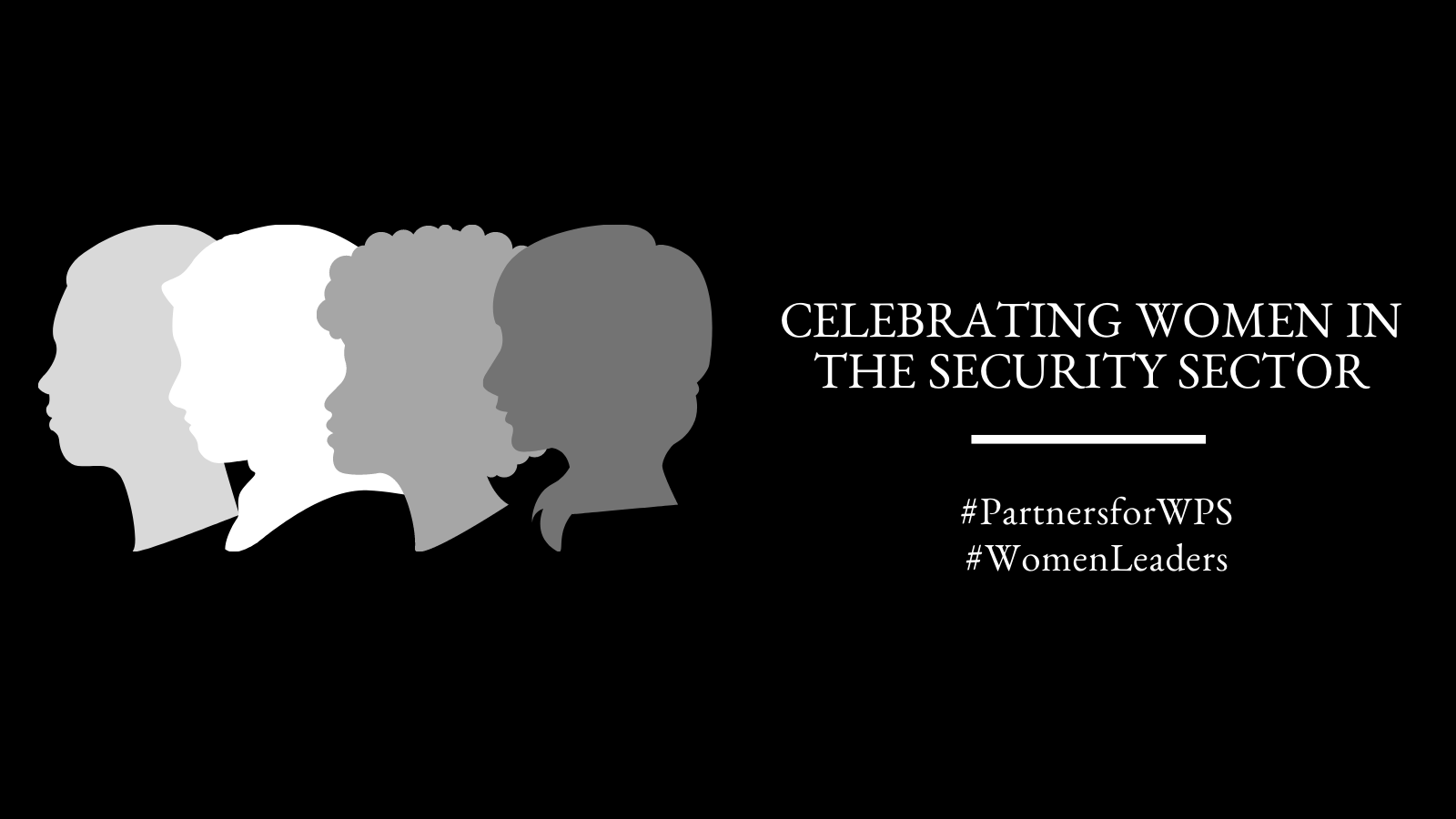Celebrating Women in the Security Sector: Chief Commissioner of Police Jocelyne Terafudem Zaghe Dabiré-Somé from Burkina Faso
September 24, 2020

Burkina Faso did not open admissions to women in the police force until 1975 following the UN World Conferences for Women in Beijing that same year. However, it was not until 2006 that the local police began regular annual recruitment of women. Today, women represent 10 percent of police personnel in the country.
This policy change set the stage for the 11-year veteran, Chief Commissioner of Police (CP) Some, President of the Association of Female Officers of the National Police of Burkina Faso (AFFPN-BF) and steering committee member for the Sahel Road Safety Initiative State Department INL project.
We have the honor of acquainting you with Chief Commissioner of Police (CP) Jocelyne Terafudem Zaghe Dabiré-Somé, President of the Association of Female Officers of the National Police of Burkina Faso (AFFPN-BF). Chief CP Some has served her country of Burkina Faso for 11-years in her avant-garde role as a woman occupying this position in the national police. A holder of a master’s degree in business and private law, she decided to turn toward the security sector and enlist in the police academy to address some security issues that affect women and girls to a greater degree.
CP Somé always wanted to take an active role in security measures to protect her community’s needs and personal security. As a child, Chief CP Some always felt that the police’s policies and actions did not meet specific security needs that she needed as a girl child facing varying forms of challenges in school and public spaces. This gap was the propelling motivation for her to join the police to become part of a future generation’s solution.
As President of the Association of Female Officials of the National Police of Burkina Faso (AFFPN-BF), she is fully committed to promoting women’s advancement in the security sector. The AFFPN-BF hosts awareness-raising activities and facilitates training sessions and community dialogues to eliminate gender discrimination and related law enforcement policies. The Chief’s training expertise has been called upon in other capacities as well. In January 2020, the United Nations Institute for Training and Research (UNITAR) requested her presence to facilitate awareness and mentoring sessions for their Towards Shattering the Glass Labyrinth of Female Leadership in the National Security Forces project.
In February 2019, the Commissioner joined a panel comprised of senior leaders from the Sahel region’s security sector. Organized by the United States Embassy in Burkina Faso, the event’s theme was “institutionalizing resilience: integrating military efforts, integrating military efforts, and law enforcement and community stabilization.” It was part of a Flintlock exercise in Burkina Faso. Chief CP Some’s participation in these diverse interventions enabled her to reach various broad targets for the significant consideration of gender and vulnerable people, often neglected in protective actions in security governance.
This high-level gender advocate’s highlight moment was when she passed the police commissioner’s exam despite not receiving her father’s approval. He had other hopes for her career. It was not until 2009 when Chief CP Some received the rank of major that her father became her biggest fan, she recalls, grinning proudly. Being a skilled trainer and facilitator, the President of the AFFPN-BF capitalizes on each training session as an opportunity for the sharing of enriching experiences.
She is contemplating her next steps, post-life as a national police officer, Chief CP Some endeavors to join a UN mission to gain international experience and a broader perspective on security issues. In the meantime, her newest local contribution to the security sector is serving as a new steering committee member for the Sahel Road Safety Initiative project for the local non-governmental organization la Fondation pour la sécurité du citoyen (FOSEC).
